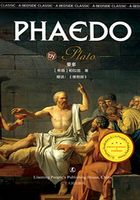"How odd indeed!" repeated Elinor within herself, regarding her sister with uneasiness. "If she had not known him to be in town she would not have written to him as she did; she would have written to Combe Magna; and if he is in town, how odd that he should neither come nor write! Oh! my dear mother, you must be wrong in permitting an engagement between a daughter so young, a man so little known, to be carried on in so doubtful, so mysterious a manner! I long to inquire,but how will my interference be borne!"
She determined after some consideration that if appearances continued many days longer as unpleasant as they now were, she would represent in the strongest manner to her mother the necessity of some serious inquiry into the affair.
Mrs. Palmer and two elderly ladies of Mrs. Jennings's intimate acquaintance, whom she had met and invited in the morning, dined with them. The former left them soon after tea to fulfill her evening engagements, and Elinor was obliged to assist in making a whist-table for the others. Marianne was of no use on these occasions, as she would never learn the game, but though her time was therefore at her own disposal, the evening was by no means more productive of pleasure to her than to Elinor, for it was spent in all the anxiety of expectation and the pain of disappointment. She sometimes endeavoured for a few minutes to read; but the book was soon thrown aside, and she returned to the more interesting employment of walking backwards and forwards across the room, pausing for a moment whenever she came to the window in hopes of distinguishing the long-expected rap.
Chapter 5
"IF THIS OPEN weather holds much longer," said Mrs. Jennings when they met at breakfast the following morning, "Sir John will not like leaving Barton next week; 'tis a sad thing for sportsmen to lose a day's pleasure. Poor souls! I always pity them when they do; they seem to take it so much to heart."
"That is true," cried Marianne in a cheerful voice, and walking to the window as she spoke to examine the day."I had not thought of that.This weather will keep many sportsmen in the country."
It was a lucky recollection; all her good spirits were restored by it."It is charming weather for them indeed,"she continued as she sat down to the breakfast table with a happy countenance . "How much they must enjoy it! But" (with a little return of anxiety) "it cannot be expected to last long. At this time of year, and after such a series of rain, we shall certainly have very little more of it. Frosts will soon set in and in all probability with severity. In another day or two perhaps; this extreme mildness can hardly last longer—nay, perhaps it may freeze to-night!"
"At any rate," said Elinor, wishing to prevent Mrs. Jennings from seeing her sister's thoughts as clearly as she did, "I dare say we shall have Sir John and Lady Middleton in town by the end of next week."
"Aye, my dear, I'll warrant you we do. Mary always has her own way."
"And now," silently conjectured Elinor, "she will write to Combe by this day's post."
But if she did,the letter was written and sent away with a privacy which eluded all her watchfulness to ascertain the fact. Whatever the truth of it might be, and far as Elinor was from feeling thorough contentment about it, yet while she saw Marianne in spirits, she could not be very uncomfortable herself. And Marianne was in spirits; happy in the mildness of the weather and still happier in her expectation of a frost.
The morning was chiefly spent in leaving cards at the houses of Mrs. Jennings's acquaintance to inform them of her being in town; and Marianne was all the time busy in observing the direction of the wind, watching the variations of the sky, and imagining an alteration in the air.
"Don't you find it colder than it was in the morning, Elinor? There seems to me a very decided difference. I can hardly keep my hands warm even in my muff. It was not so yesterday, I think. The clouds seem parting too; the sun will be out in a moment; and we shall have a clear afternoon."
Elinor was alternately diverted and pained; but Marianne persevered and saw every night in the brightness of the fire, and every morning in the appearance of the atmosphere, the certain symptoms of approaching frost.
The Miss Dashwoods had no greater reason to be dissatisfied with Mrs. Jennings's style of living and set of acquaintance than with her behaviour to themselves, which was invariably kind. Everything in her household arrangements was conducted on the most liberal plan, and excepting a few old city friends whom, to Lady Middleton's regret, she had never dropped, she visited no one to whom an introduction could at all discompose the feelings of her young companions. Pleased to find herself more comfortably situated in that particular than she had expected, Elinor was very willing to compound for the want of much real enjoyment from any of their evening parties, which, whether at home or abroad, formed only for cards, could have little to amuse her.
Colonel Brandon, who had a general invitation to the house, was with them almost every day; he came to look at Marianne and talk to Elinor, who often derived more satisfaction from conversing with him than from any other daily occurrence, but who saw at the same time with much concern his continued regard for her sister. She feared it was a strengthening regard. It grieved her to see the earnestness with which he often watched Marianne, and his spirits were certainly worse than when at Barton.
About a week after their arrival it became certain that Willoughby was also arrived. His card was on the table when they came in from the morning's drive.
"Good God!" cried Marianne, "he has been here while we were out." Elinor, rejoiced to be assured of his being in London, now ventured to say, "depend upon it he will call again to-morrow." But Marianne seemed hardly to hear her, and on Mrs. Jennings's entrance, escaped with the precious card.
This event, while it raised the spirits of Elinor, restored to those of her sister all, and more than all, their former agitation. From this moment her mind was never quiet; the expectation of seeing him every hour of the day made her unfit for anything. She insisted on being left behind the next morning when the others went out.
Elinor's thoughts were full of what might be passing in Berkeley Street during their absence; but a moment's glance at her sister when they returned was enough to inform her that Willoughby had paid no second visit there. A note was just then brought in and laid on the table."For me?" cried Marianne, stepping hastily forward.
"No, ma'am, for my mistress."
But Marianne, not convinced, took it instantly up.
"It is indeed for Mrs. Jennings; how provoking!"
"You are expecting a letter, then?" said Elinor, unable to be longer silent.
"Yes, a little—not much."
After a short pause, "You have no confidence in me, Marianne."
"Nay,Elinor,this reproach from you—you who have confidence in no one!"
"Me!" returned Elinor in some confusion; "indeed, Marianne, I have nothing to tell."
"Nor I," answered Marianne with energy, "our situations, then, are alike. We have neither of us anything to tell; you, because you communicate, and I, because I conceal nothing."
Elinor, distressed by this charge of reserve in herself, which she was not at liberty to do away, knew not how, under such circumstances, to press for greater openness in Marianne.
Mrs. Jennings soon appeared, and the note being given her, she read it aloud. It was from Lady Middleton, announcing their arrival in Conduit Street the night before, and requesting the company of her mother and cousins the following evening. Business on Sir John's part and a violent cold on her own prevented their calling in Berkeley Street. The invitation was accepted: but when the hour of appointment drew near, necessary as it was in common civility to Mrs. Jennings that they should both attend her on such a visit, Elinor had some difficulty in persuading her sister to go, for still she had seen nothing of Willoughby; and therefore was not more indisposed for amusement abroad than unwilling to run the risk of his calling again in her absence.
Elinor found, when the evening was over, that disposition is not materially altered by a change of abode, for although scarcely settled in town, Sir John had contrived to collect around him nearly twenty young people and to amuse them with a ball. This was an affair, however, of which Lady Middleton did not approve. In the country an unpremeditated dance was very allowable; but in London, where the reputation of elegance was more important and less easily obtained, it was risking too much for the gratification of a few girls to have it known that Lady Middleton had given a small dance of eight or nine couples, with two violins and a mere sideboard collation.
Mr. and Mrs. Palmer were of the party; from the former, whom they had not seen before since their arrival in town, as he was careful to avoid the appearance of any attention to his mother-in-law and therefore never came near her, they received no mark of recognition on their entrance. He looked at them slightly without seeming to know who they were and merely nodded to Mrs. Jennings from the other side of the room. Marianne gave one glance round the apartment as she entered; it was enough,he was not there—and she sat down,equally ill-disposed to receive or communicate pleasure. After they had been assembled about an hour, Mr. Palmer sauntered towards the Miss Dashwoods to express his surprise on seeing them in town, though Colonel Brandon had been first informed of their arrival at his house, and he had himself said something very droll on hearing that they were to come.
"I thought you were both in Devonshire," said he.
"Did you?" replied Elinor.
"When do you go back again?"
"I do not know." And thus ended their discourse.
Never had Marianne been so unwilling to dance in her life as she was that evening, and never so much fatigued by the exercise. She complained of it as they returned to Berkeley Street.
"Aye, aye," said Mrs. Jennings, "we know the reason of all that very well; if a certain person, who shall be nameless, had been there, you would not have been a bit tired; and to say the truth it was not very pretty of him not to give you the meeting when he was invited."
"Invited!" cried Marianne.
"So my daughter Middleton told me, for it seems Sir John met him somewhere in the street this morning." Marianne said no more, but looked exceedingly hurt. Impatient in this situation to be doing something that might lead to her sister's relief, Elinor resolved to write the next morning to her mother, and hoped by awakening her fears for the health of Marianne to procure those inquiries which had been so long delayed; and she was still more eagerly bent on this measure by perceiving after breakfast on the morrow that Marianne was again writing to Willoughby, for she could not suppose it to be to any other person.
About the middle of the day, Mrs. Jennings went out by herself on business, and Elinor began her letter directly while Marianne, too restless for employment, too anxious for conversation, walked from one window to the other or sat down by the fire in melancholy meditation. Elinor was very earnest in her application to her mother, relating all that had passed, her suspicions of Willoughby's inconstancy, urging her by every plea of duty and affection to demand from Marianne an account of her real situation with respect to him.
Her letter was scarcely finished when a rap foretold a visitor, and Colonel Brandon was announced. Marianne, who had seen him from the window, and who hated company of any kind, left the room before he entered it. He looked more than usually grave, and though expressing satisfaction at finding Miss Dashwood alone, as if he had somewhat in particular to tell her, sat for some time without saying a word. Elinor, persuaded that he had some communication to make in which her sister was concerned, impatiently expected its opening. It was not the first time of her feeling the same kind of conviction; for more than once before, beginning with the observation of "your sister looks unwell to-day," or"your sister seems out of spirits," he had appeared on the point either of disclosing or of inquiring something particular about her. After a pause of several minutes, their silence was broken by his asking her in a voice of some agitation when he was to congratulate her on the acquisition of a brother? Elinor was not prepared for such a question, and having no answer ready was obliged to adopt the simple and common expedient of asking what he meant? He tried to smile as he replied, "Your sister's engagement to Mr. Willoughby is very generally known."
"It cannot be generally known," returned Elinor, "for her own family do not know it."
He looked surprised and said, "I beg your pardon, I am afraid my inquiry has been impertinent; but I had not supposed any secrecy intended, as they openly correspond, and their marriage is universally talked of."
"How can that be? By whom can you have heard it mentioned?"
"By many—by some of whom you know nothing, by others with whom you are most intimate, Mrs. Jennings, Mrs. Palmer, and the Middletons. But still I might not have believed it, for where the mind is perhaps rather unwilling to be convinced, it will always find something to support its doubts, if I had not when the servant let me in to-day, accidentally seen a letter in his hand, directed to Mr. Willoughby in your sister's writing. I came to inquire, but I was convinced before I could ask the question. Is everything finally settled? Is it impossible to—? But I have no right, and I could have no chance of succeeding. Excuse me, Miss Dashwood. I believe I have been wrong in saying so much, but I hardly know what to do, and on your prudence I have the strongest dependence. Tell me that it is all absolutely resolved on, that any attempt, that in short concealment, if concealment be possible, is all that remains."
These words, which conveyed to Elinor a direct avowal of his love for her sister, affected her very much. She was not immediately able to say anything, and even when her spirits were recovered, she debated for a short time on the answer it would be most proper to give. The real state of things between Willoughby and her sister was so little known to herself that in endeavouring to explain it, she might be as liable to say too much as too little. Yet as she was convinced that Marianne's affection for Willoughby could leave no hope of Colonel Brandon's success, whatever the event of that affection might be, and at the same time wished to shield her conduct from censure, she thought it most prudent and kind, after some consideration, to say more than she really knew or believed. She acknowledged, therefore, that though she had never been informed by themselves of the terms on which they stood with each other, of their mutual affection she had no doubt, and of their correspondence she was not astonished to hear.
He listened to her with silent attention, and on her ceasing to speak rose directly from his seat, and after saying in a voice of emotion, "To your sister I wish all imaginable happiness; to Willoughby that he may endeavour to deserve her," —took leave and went away.
Elinor derived no comfortable feelings from this conversation to lessen the uneasiness of her mind on other points; she was left, on the contrary, with a melancholy impression of Colonel Brandon's unhappiness, and was prevented even from wishing it removed, by her anxiety for the very event that must confirm it.
Chapter 6
NOTHING OCCURRED DURING the next three or four days to make Elinor regret what she had done in applying to her mother; for Willoughby neither came nor wrote. They were engaged about the end of that time to attend Lady Middleton to a party from which Mrs. Jennings was kept away by the indisposition of her youngest daughter; and for this party, Marianne, wholly dispirited, careless of her appearance, and seeming equally indifferent whether she went or stayed, prepared without one look of hope or one expression of pleasure. She sat by the drawing-room fire after tea till the moment of Lady Middleton's arrival, without once stirring from her seat or altering her attitude, lost in her own thoughts and insensible of her sister's presence; and when at last they were told that Lady Middleton waited for them at the door, she started as if she had forgotten that anyone was expected.
They arrived in due time at the place of destination, and as soon as the string of carriages before them would allow, alighted, ascended the stairs, heard their names announced from one landing-place to another in an audible voice, and entered a room splendidly lit up, quite full of company, and insufferably hot. When they had paid their tribute of politeness by curtesying to the lady of the house, they were permitted to mingle in the crowd and take their share of the heat and inconvenience, to which their arrival must necessarily add. After some time spent in saying little and doing less, Lady Middleton sat down to Casino, and as Marianne was not in spirits for moving about, she and Elinor luckily succeeding to chairs, placed themselves at no great distance from the table.
They had not remained in this manner long, before Elinor perceived Willoughby, standing within a few yards of them, in earnest conversation with a very fashionable-looking young woman. She soon caught his eye, and he immediately bowed, but without attempting to speak to her or to approach Marianne, though he could not but see her; and then continued his discourse with the same lady. Elinor turned involuntarily to Marianne to see whether it could be unobserved by her. At that moment she first perceived him, and her whole countenance glowing with sudden delight, she would have moved towards him instantly had not her sister caught hold of her.
"Good heavens!" she exclaimed, "he is there—He is there—Oh! why does he not look at me? Why cannot I speak to him?"
"Pray, pray be composed," cried Elinor, "and do not betray what you feel to everybody present. Perhaps he has not observed you yet."
This, however, was more than she could believe herself; and to be composed at such a moment was not only beyond the reach of Marianne, it was beyond her wish. She sat in an agony of impatience which affected every feature.
At last he turned round again and regarded them both; she started up, and pronouncing his name in a tone of affection, held out her hand to him. He approached, and addressing himself rather to Elinor than Marianne, as if wishing to avoid her eye, and determined not to observe her attitude, inquired in a hurried manner after Mrs. Dashwood, and asked how long they had been in town. Elinor was robbed of all presence of mind by such an address and was unable to say a word. But the feelings of her sister were instantly expressed. Her face was crimsoned over, and she exclaimed in a voice of the greatest emotion, "Good God! Willoughby, what is the meaning of this? Have you not received my letters? Will you not shake hands with me?"
He could not then avoid it, but her touch seemed painful to him, and he held her hand only for a moment. During all this time he was evidently struggling for composure. Elinor watched his countenance and saw its expression becoming more tranquil. After a moment's pause, he spoke with calmness.
"I did myself the honour of calling in Berkeley Street last Tuesday and very much regretted that I was not fortunate enough to find yourselves and Mrs. Jennings at home. My card was not lost, I hope."
"But have you not received my notes?" cried Marianne in the wildest anxiety. "Here is some mistake I am sure—some dreadful mistake. What can be the meaning of it? Tell me, Willoughby; for heaven's sake tell me, what is the matter?"
He made no reply; his complexion changed and all his embarrassment returned; but as if, on catching the eye of the young lady with whom he had been previously talking, he felt the necessity of instant exertion, he recovered himself again, and after saying, "Yes, I had the pleasure of receiving the information of your arrival in town, which you were so good as to send me," turned hastily away with a slight bow and joined his friend.
Marianne, now looking dreadfully white and unable to stand, sank into her chair, and Elinor, expecting every moment to see her faint, tried to screen her from the observation of others while reviving her with lavender-water.
"Go to him, Elinor," she cried as soon as she could speak, "and force him to come to me. Tell him I must see him again—must speak to him instantly. I cannot rest—I shall not have a moment's peace till this is explained—some dreadful misapprehension or other. Oh, go to him this moment."
"How can that be done? No, my dearest Marianne, you must wait.This is not a place for explanations. Wait only till to-morrow."
With difficulty, however, could she prevent her from following him herself; and to persuade her to check her agitation, to wait at least with the appearance of composure till she might speak to him with more privacy and more effect, was impossible; for Marianne continued incessantly to give way in a low voice to the misery of her feelings by exclamations of wretchedness. In a short time Elinor saw Willoughby quit the room by the door towards the staircase, and telling Marianne that he was gone, urged the impossibility of speaking to him again that evening as a fresh argument for her to be calm. She instantly begged her sister would entreat Lady Middleton to take them home, as she was too miserable to stay a minute longer.
Lady Middleton, though in the middle of a rubber, on being informed that Marianne was unwell, was too polite to object for a moment to her wish of going away, and making over her cards to a friend, they departed as soon as the carriage could be found. Scarcely a word was spoken during their return to Berkeley Street. Marianne was in a silent agony, too much oppressed even for tears; but as Mrs. Jennings was luckily not come home, they could go directly to their own room, where hartshorn restored her a little to herself. She was soon undressed and in bed, and as she seemed desirous of being alone, her sister then left her, and while she waited the return of Mrs. Jennings, had leisure enough for thinking over the past.
That some kind of engagement had subsisted between Willoughby and Marianne she could not doubt; and that Willoughby was weary of it seemed equally clear; for however Marianne might still feed her own wishes,she could not attribute such behaviour to mistake or misapprehension of any kind. Nothing but a thorough change of sentiment could account for it. Her indignation would have been still stronger than it was had she not witnessed that embarrassment which seemed to speak a consciousness of his own misconduct and prevented her from believing him so unprincipled as to have been sporting with the affections of her sister from the first, without any design that would bear investigation. Absence might have weakened his regard, and convenience might have determined him to overcome it, but that such a regard had formerly existed she could not bring herself to doubt.
As for Marianne, on the pangs which so unhappy a meeting must already have given her, and on those still more severe which might await her in its probable consequence, she could not reflect without the deepest concern. Her own situation gained in the comparison; for while she could esteem Edward as much as ever,however they might be divided in future, her mind might be always supported. But every circumstance that could embitter such an evil seemed uniting to heighten the misery of Marianne in a final separation from Willoughby—in an immediate and irreconcilable rupture with him.
Chapter 7















